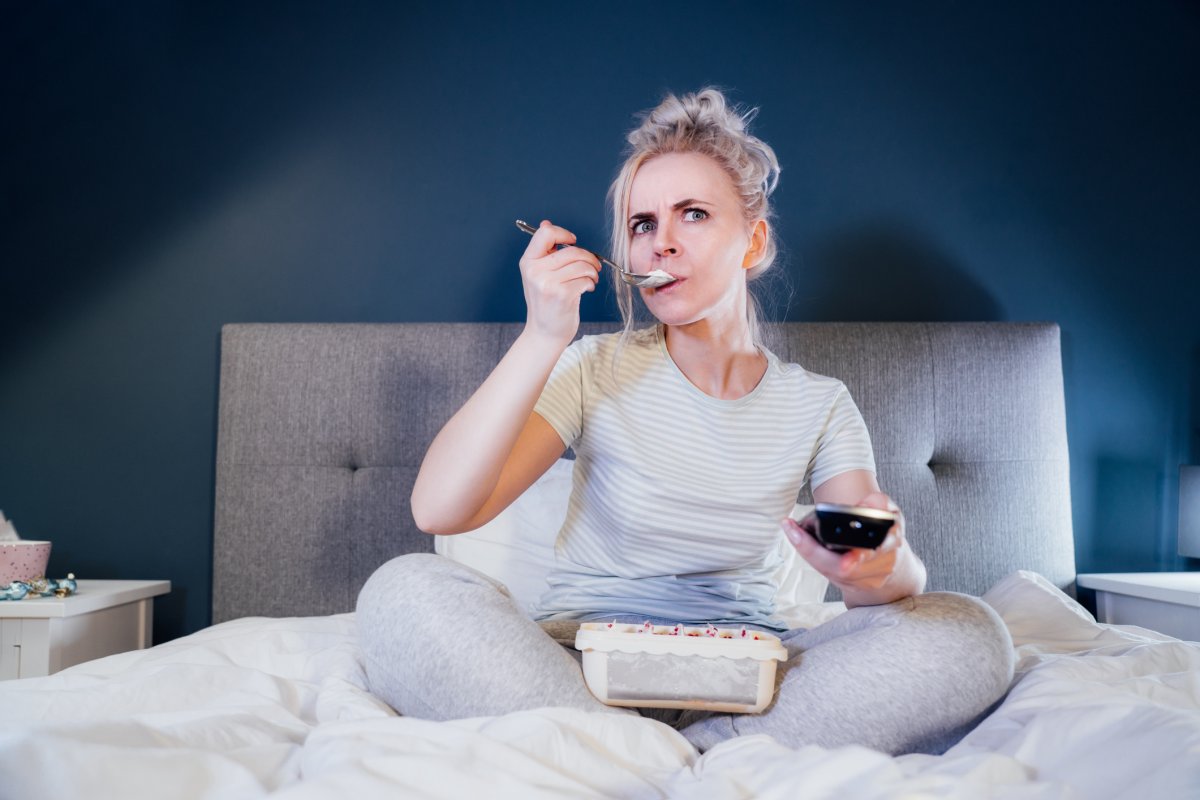Our diet and our sleep are intimately linked. But during cold winter months, the temptation for a late-night snack can be overwhelming. So what can you eat before bedtime to guarantee a good night's sleep?
"Generally leaving two to three hours before eating and going to sleep is recommended," Kathryn Kelly, a dietitian at the U.K.'s National Health Service (NHS), told Newsweek.
Eating close to bedtime can increase our risk of acid reflux and even disrupt our internal biological clocks, making it harder to fall asleep. Food consumed at nighttime may also be more likely to be stored as fat due to the slowing in our metabolism as our bodies prepare for bed. However, there are some foods that, in small quantities, may actually help with our sleep.

"Tryptophan-containing foods like milk, fish, eggs, green leafy vegetables, pulses, [nuts] and seeds are considered to be positive in promoting sleep," Kelly said. "Tryptophan is an amino acid necessary for making proteins, it is converted to serotonin and melatonin which affects the sleep-wake cycle of the body."
But our midnight snacks are not the only lifestyle factor affecting our sleep. "Sleep can also be affected by our diet, both what we eat and what we don't as well as exercise and the routine of daily life," Kelly, who has partnered with the British retailer NEXT to offer advice on reclaiming a restful night's sleep, said.
Starting with alcohol—While a quick drink before bed might make us feel sleepy, studies have shown that alcohol can significantly impact our sleep cycle. "In addition, it can contribute to feeling dehydrated both of which may be responsible for a disturbed night's sleep," Kelly said. "Drinking extra fluid before bed can also result in needing to get up more often."
It's also no secret that caffeinated drinks like tea and coffee can keep us up at night. "Caffeine blocks some of the receptors that promote the feelings of tiredness and may be the cause of less restorative sleep which can be the reason you feel less refreshed in the morning," Kelly said. "Reducing the amount of caffeinated drinks especially later in the day may help."
But caffeine can be found in other foods and drinks too, especially chocolate and carbonated drinks.
In short, eating and drinking before bed is not, in general, recommended. But if you do find yourself with a case of the midnight munchies, foods and drinks rich in tryptophan, like nuts, seeds and milk are usually still conducive to a good night's sleep.
Is there a health problem that's worrying you? Do you have a question about sleep? Let us know via health@newsweek.com. We can ask experts for advice, and your story could be featured in Newsweek.
Uncommon Knowledge
Newsweek is committed to challenging conventional wisdom and finding connections in the search for common ground.
Newsweek is committed to challenging conventional wisdom and finding connections in the search for common ground.
About the writer
Pandora Dewan is a Senior Science Reporter at Newsweek based in London, UK. Her focus is reporting on science, health ... Read more
To read how Newsweek uses AI as a newsroom tool, Click here.








